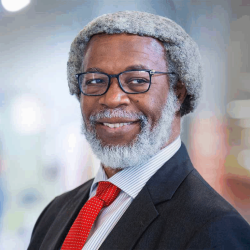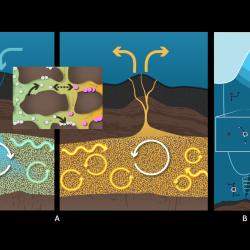CMNS Summer Reads: 2022
If you find yourself with some free time this summer and want to gain some science knowledge from renowned experts, look no further. The CMNS Summer Reads list has you covered.
Check out our 2022 summer reading list for Science Terps, with books written by faculty and alums from the University of Maryland's College of Computer, Mathematical, and Natural Sciences. This year’s list includes new books on artificial intelligence, quantum physics, and even tools to overcome the forces of marginalization in the workplace.
“A Brief History of Timekeeping”
By Chad Orzel (Ph.D. '99, chemical physics)
From the movements of the spheres to the slipperiness of relativity, the story of science unfolds through the fascinating history of humanity’s efforts to keep time.
In “A Brief History of Timekeeping,” Chad Orzel traces the path from Stonehenge to your smartphone. Predating written language and marching on through human history, the desire for ever-better timekeeping has spurred technological innovation and sparked theories that radically reshaped our understanding of the universe and our place in it.
“Contemporary Kinetic Theory of Matter”
By J. R. Dorfman (Physics and Institute for Physical Science and Technology Professor Emeritus), Henk van Beijeren, and Theodore Kirkpatrick (Physics and Institute for Physical Science and Technology Professor Emeritus)
Kinetic theory provides a microscopic description of many observable, macroscopic processes and has a wide range of important applications in physics, astronomy, chemistry and engineering.
This powerful, theoretical framework allows a quantitative treatment of many non-equilibrium phenomena such as transport processes in classical and quantum fluids. Read more about “Contemporary Kinetic Theory of Matter” from the University of Maryland’s Institute for Physical Science and Technology here.
“Human-Centered AI”
By Ben Shneiderman, Department of Computer Science Distinguished University Professor
As many technology companies and thought leaders have argued, the goal is not to replace people with artificial intelligence, but to empower them by making design choices that give humans control over technology.
In “Human-Centered AI,” Professor Ben Shneiderman offers an optimistic realist's guide to how artificial intelligence can be used to augment and enhance humans' lives. Digital cameras, communications services, and navigation apps are just the beginning. Shneiderman shows how future applications will support health and wellness, improve education, accelerate business, and connect people in reliable, safe, and trustworthy ways that respect human values, rights, justice, and dignity.
“Quantum Steampunk: The Physics of Yesterday's Tomorrow”
By Nicole Yunger-Halpern, Joint Center for Quantum Information and Computer Science (QuICS) Fellow
Victorian era steam engines and particle physics may seem worlds (as well as centuries) apart, yet a new branch of science, quantum thermodynamics, reenvisions the scientific underpinnings of the Industrial Revolution through the lens of today's roaring quantum information revolution. Dr. Nicole Yunger Halpern introduces these concepts to the uninitiated with what she calls "quantum steampunk," after the fantastical genre that pairs futuristic technologies with Victorian sensibilities.
Moving from fundamental physics to cutting-edge experimental applications, “Quantum Steampunk” explores the field's aesthetic, shares its whimsy, and gazes into the potential of a quantum future. The result is a blast for fans of science, science fiction, and fantasy.
Read more about Yunger-Halpern’s journey studying quantum thermodynamics and the inspiration behind her book in this Joint Quantum Institute article.
“Seen, Heard, and Paid: The New Work Rules for the Marginalized”
By Alan Henry (B.S. '02, astronomy; B.S. '02, physics)
Released June 7, technology writer and editor Alan Henry interviews experts across multiple fields to come up with powerful tools to overcome the forces of marginalization. In “Seen, Heard, and Paid,” Henry shares the new work rules that may finally allow people of color, women, and LGBTQ+ folks to have the same access to career advancement and rewarding work as those with more privilege.
Whether you’re dealing with microaggressions, trying to get the glamour work instead of the office housework, weighing the pluses and minuses of working remotely, or deciding it’s time to look for a new opportunity, "Seen, Heard, and Paid" will help you feel informed, supported, and empowered.
Read more about Henry’s journey in this Department of Physics article.
Are you a Science Terp with a book in the works that is set to publish between now and June 2023? Send us an email with the information at cmns@umd.edu, and we'll feature it in next year's summer reading list!
###
Media Relations Contact: Katie Bemb, kbemb@umd.edu, 301-405-0215
University of Maryland
College of Computer, Mathematical, and Natural Sciences
2300 Symons Hall
College Park, Md. 20742
www.cmns.umd.edu
@UMDscience
About the College of Computer, Mathematical, and Natural Sciences
The College of Computer, Mathematical, and Natural Sciences at the University of Maryland educates more than 9,000 future scientific leaders in its undergraduate and graduate programs each year. The college's 10 departments and more than a dozen interdisciplinary research centers foster scientific discovery with annual sponsored research funding exceeding $200 million.







